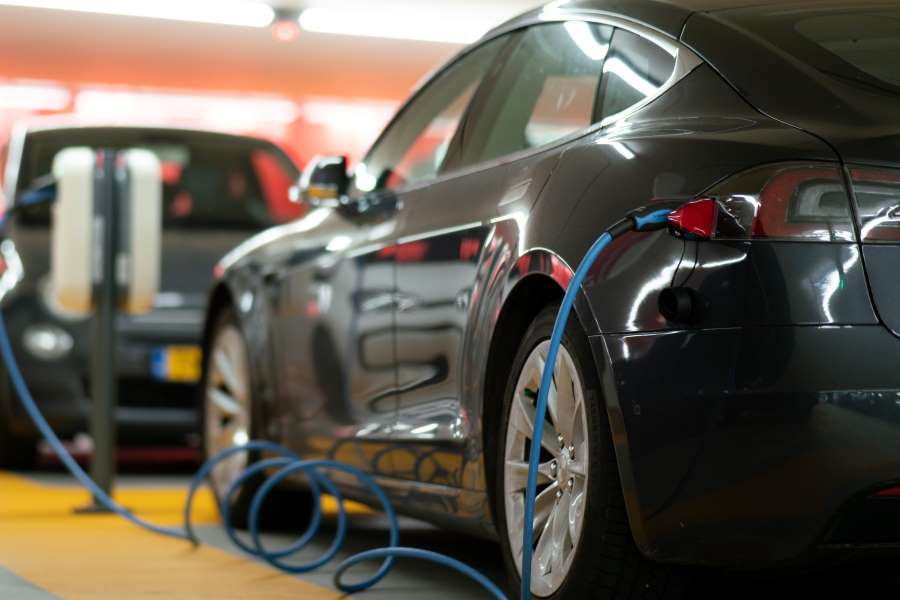If employees or self-employed persons use a company car not only for business but also for private journeys, they must pay tax on the so-called non-cash benefit. Taxing the company car correctly is required by law. In this article, we explain the rules to follow and what you should pay attention to.
Why is it important to tax a company car correctly?
Correct taxation is very important for both the employee and the employer. Here are some reasons why:
- Legal obligation: If an employee also uses the company car privately, this is a non-cash benefit that is considered income. Incorrect taxation can have legal consequences such as additional tax payments, fines or even criminal prosecution.
- Avoidance of tax evasion: By correctly declaring and taxing the non-cash benefit, you act in accordance with tax law and avoid possible legal consequences.
- Avoidance of additional tax payments: In the event of a retrospective audit, the tax office may determine that the non-cash benefit was not sufficiently taxed and a corresponding additional payment must be made.
- Legal certainty for employees and employers. If the non-cash benefit is taxed transparently and correctly, there are no uncertainties or disputes with the tax office.
Taxing company cars taking into account the non-cash benefit
Company cars are used for business appointments, transportation or patient visits, for example. As an incentive, private use is often also permitted, resulting in a non-cash benefit. The tax office regards this benefit as a kind of “salary component” that is relevant for tax purposes.
There are various methods of calculating and taxing the non-cash benefit of a company car. With the one percent rule, one percent of the list price of the vehicle is taxed monthly as a non-cash benefit. Alternatively, a logbook can be kept in which the private and business journeys are recorded in order to determine the non-cash benefit accordingly. The tax treatment of the non-cash benefit may vary depending on the country and legal situation.
Allocation of the company car to business assets:
Sole proprietorships or self-employed persons should clarify whether the vehicle is to be classified as business assets or private assets. If it belongs to private assets, each business trip must be accounted for individually. If it is part of the business assets, the private share is taxable according to the logbook or one percent rule.
Do you know your obligations in the fleet?
Find out what owner liability means in the vehicle fleet and what you need to bear in mind.
Taxing company cars with the one percent rule
Taxation according to the one percent rule involves little effort, but can lead to higher tax payments as it does not take into account actual use. This regulation is based on the gross list price of the vehicle including VAT. Every month, one percent of this list price is calculated as a non-cash benefit and added to the salary, which increases the gross salary. The same calculation applies to a company bicycle.
In the case of electric and hybrid vehicles, the non-cash benefit is halved by taxing only 0.5 percent of the list price each month. If the company car is also used for journeys between home and work, an additional 0.03 percent of the list price per kilometer between home and work is applied.
The one percent rule applies to purchased, rented or leased vehicles. It is important to note that the one percent rule always takes into account the new value of the vehicle. This means that even if a used car is used as a company car, a percentage of the new value is taken into account. The one percent rule is therefore particularly advantageous if the value of the vehicle is lower and therefore a lower value is taken into account.
Advantages of the 1 percent rule
- Simple calculation
- Low administrative effort, as no records are required
- Cost certainty – the benefit always remains the same
Disadvantage of the 1 percent rule
- As actual use is not taken into account, this can lead to overtaxation if there is little private use.
- No consideration of environmental aspects: The high list price of e-cars is applied; even a company bicycle is taxed at 1%

Taxing company cars with the logbook method
When using a logbook, the calculation of the non-cash benefit is based on the actual use of the vehicle and therefore involves more effort. However, if the company car is mainly used for business purposes and private journeys only make up a small proportion, the logbook method can lead to a lower tax burden.
The logbook can be handwritten or kept electronically. Certain details must be recorded in the logbook. For private journeys, it is important to note the kilometers driven, as these must be taxed. For business trips, the date, mileage at the beginning and end of the trip, destination, route, purpose of the trip, name of the business partner, etc. must be entered.
The logbook must be kept in full, in the correct chronological order and in a timely manner. This is to ensure that the costs incurred in connection with the company car, including the annual depreciation, can be traced without any gaps. The actual acquisition costs of the vehicle are taken as a basis.
Tax advantages: Taxing electric and hybrid cars as company cars
In order to promote electromobility in Germany, the private use of these company cars is tax-privileged. For hybrid and electric vehicles, only 0.5 percent of the list price is applied and the non-cash benefit is therefore halved. This regulation applies until December 31, 2030 and saves the employee wage tax and the employer social security contributions. The prerequisite is a maximum carbon dioxide emission of 50 grams per kilometer driven and an electric range of at least 40 kilometers. There are also tax benefits when charging the electric vehicle and for vehicle tax.
Prohibit private use of company car
If an employee uses a company car exclusively for business purposes, the company can deduct all associated costs and the employee does not have to pay any additional income tax. To avoid the tax office assuming private use, the company and employee should agree in writing on a clear ban on private use of the company car. In order to ensure that no non-cash benefit is taxed, the employee should either keep a logbook or be able to prove that the company regularly monitors compliance with the ban on private use, e.g. by signing or handing in the vehicle keys after work.
The most important facts about taxing a company car
The one percent rule offers a simple calculation, but does not take actual use into account. The logbook method requires more effort, but can lead to a lower tax burden.
The correct taxation of a company car is crucial in order to avoid legal consequences.
Electric and hybrid vehicles can offer special tax benefits that are of interest to both employees and employers.
Further fleet knowledge
If you liked this article and would like to know more about this topic, we recommend these articles.




